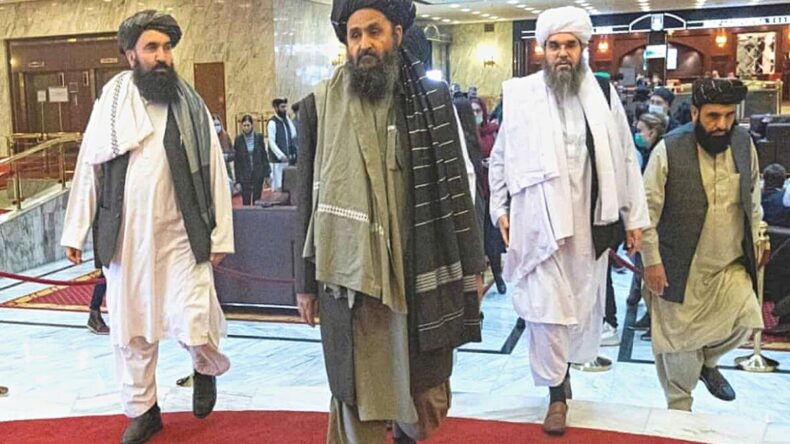Taliban’s takeover of Afghanistan has far-reaching global benefits. Among the key questions that have become known are the changing nature of US priorities in Asia and the Middle East and the fear of the Taliban holding jihadist groups — terrorists worldwide.
Both questions inextricably link with geopolitics in the broader region of Southwest Asia.
Development in Afghanistan has historically been widespread due to the central Afghanistan region connecting the Arab and Persian areas with Central Asia and the Indian subcontinent.
Apart from the landscape, cultural connections and religious networks have played their part.
One of the Soviet invasion consequences was Afghan jihad organized, sponsored, and secretly organized by the US, Pakistan, and Arab Gulf countries. Al-Qaeda is pressuring Afghanistan to become a civil war and give birth to international jihad.
The Arab Spring protests and their reorganization efforts have intensified regional competition with Turkey, Iran, Saudi Arabia, Egypt, the United Arab Emirates (UAE) and Qatar competing for greater power and influence.
International jihadi-terrorism emerged after 2011 with Islamic State in Iraq and Syria (ISIS), also known as Da’esh by its Arabic name, causing unrest in the region. This negative impact was felt everywhere.
Now the capture of the Taliban has also raised questions about the future of Afghanistan and how it will affect the wider Southwest Asia region.
So far, US policy is concerned, Washington is interested in focusing on domestic and Indo-Pacific renewal.
It means that the gap created by the departure of the US will be filled by other countries, including Russia, China, Pakistan, Iran, and Turkey. They are already beginning to engage the Taliban and will try and hope for some stability.
However, there is a widespread waste to date as regional countries are affected. While Iran and Pakistan are close neighbours of Afghanistan, they are at substantial risk for security threats. Russia, China, and Turkey are interested in economic opportunities.
All these countries will be looking for more significant influence so that Qatar will start head over for its role as a facilitator of the Taliban agreement with the US. Pakistan is also notable for its deep links with the Haqqani Network.
Therefore, Turkey, with close ties with Pakistan and Qatar, is more profitable than its regional rivals.
Iran and Afghanistan’s historical and cultural connections and meeting with various groups at the Afghan stadium and good relations with Russia and China give it some advantage.
Still, the Iranians will have to deal with any sectarian violence that the Taliban may continue or tolerate. Tehran will also be concerned about Ankara’s significant role in carrying out its day-to-day operations in Kabul.
Among the key regional actors who have been excluded from these innovations are Saudi Arabia, the UAE and India.
All three have significant interests in Afghanistan but are overwhelmed beyond measure because of their proximity to the US and because other regional actors are unwilling to play an important role.
Initial reactions from Turkey, Iran, Saudi Arabia and the UAE indicate what could be saved in the future. Both Turkey and Iran are determined to engage the Taliban in order not only to protect their interests but also to increase their regional influence.
Saudi Arabia and the UAE are monitoring and keeping the cards close to the heart. They can use their power in Islamabad to demand participation in Afghanistan and build contacts with non-Taliban.
No regional country wants instability, so it has joined forces to work with the Taliban and facilitate its return to Kabul.
However, this is easier said than done because of the Taliban’s Islamic solid work and political collapse among the regional actors.
Only time will tell what the future holds for Afghanistan, but the response from regional countries shows Afghanistan’s concern and fear of being a failed country.













